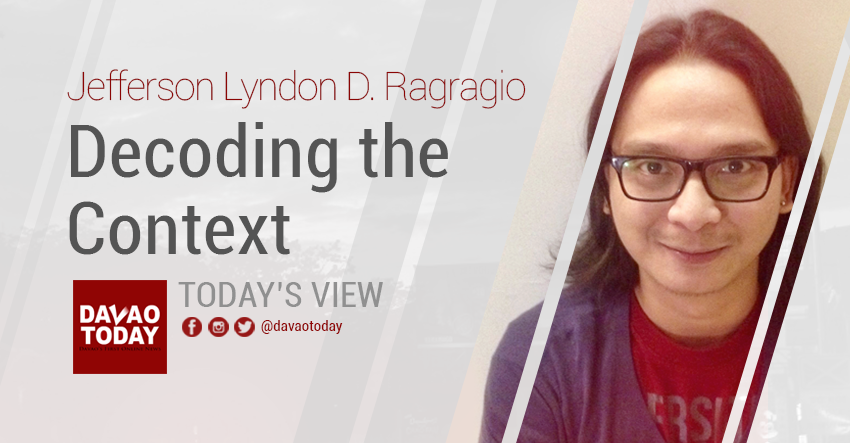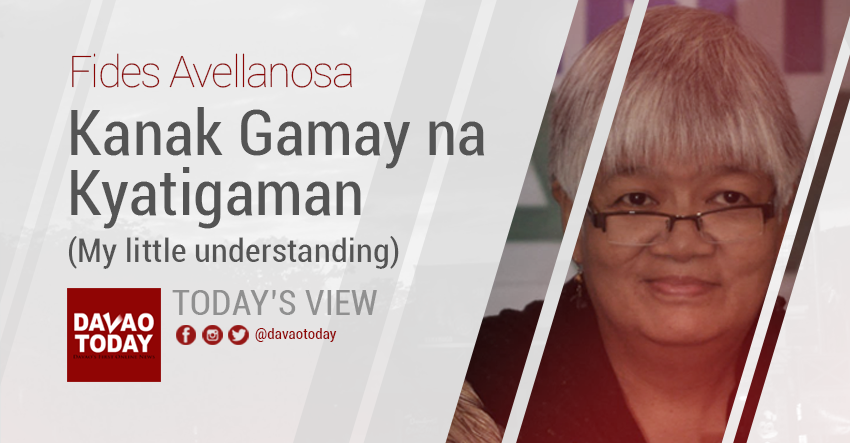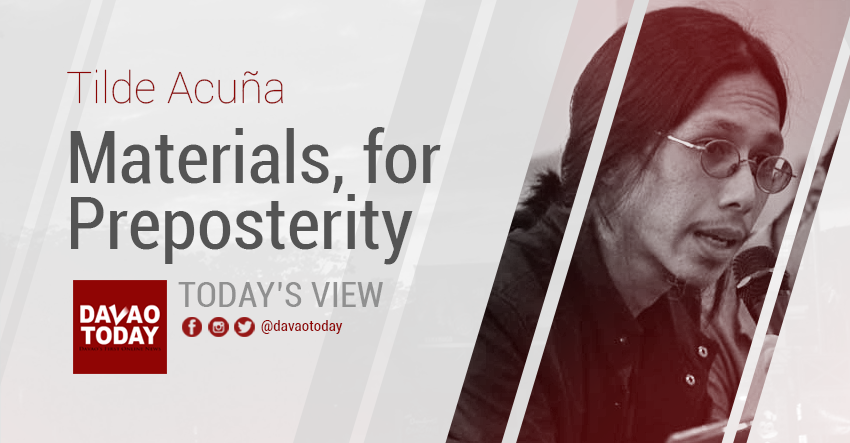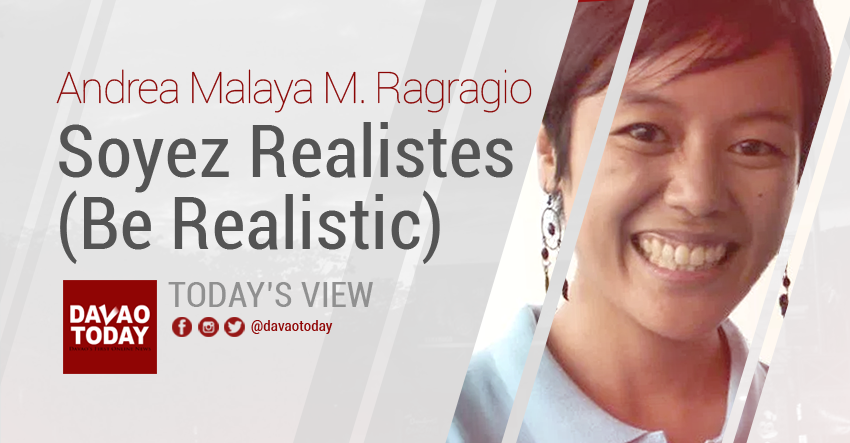Growing up in gold-rich Compostela Valley was an adventure filled childhood. We used to play in the rivers, collecting and inspecting stones to look for gold, mimicking old people looking for fortune. One very popular mineral back then that we were so fascinated was pyrite. It has the appearance of a polished gold, more of a fancy jewelry with all its luster. However, pyrite is known as fool’s gold.
The concept of “the legal” has become paradoxical in itself. It serves as a license of the state to declare whether something deserves acceptance, dispute or some kind of authoritative might. In instances when something “already legal” contravenes the new will of the powers that be, the state is quick in rallying its force just to abolish what it sees as a stumbling block to its mission of preserving its doctrinal power. The state, then, has a double-edged power in this sense. It has the overarching might to decide what is legal, and the power to destroy what it considers a threat to its survival by proclaiming such as illegal.
I often write about reasons why children, especially from age zero to 11, are highly discouraged from watching TV or movies. I remain that for TV and cinemas, the content is not the main concern. The medium itself is the problem. This time though, allow me to discuss a certain content in the news from the national TV.
The literary virtue of the balitaw in ancient times manifests mostly in the arena of courtship wherein the boy and the girl engage in verbal joust rendered in song. The boy, of course shows his skill in versified lines of the song his romantic intentions to which the girl answers with matching skill her inquests into the real intentions of the suitor. And a musical debate ensues. If the boy is able to subdue the defenses of the girl by his superior arguments in verse narrative, then he wins the heart of the girl.
The trouble with us Filipinos is that we are easily appeased. Even when our expectations are not met, we tend to compromise more often than pursue what we want to achieve or gain.
If we have the penchant for patterns, we would probably notice that most years of our lives, we spend in
circuses, or carnivals—or peryas. Such funfairs are never fair and not incessantly fun. Upon further reflection
of our shared experiences, as cliché as it may sound, we derive lessons from these rides of life and learn to
move on to the next attraction; unless we take the machines from the owners, destroy ones that do not suit
our needs, take what remains and operate another system.
So-called Dutertards are often accused of drinking the Kool-Aid, the idiomatic expression used to mean the absolute internalization of a doctrine or complete fixation upon something or someone to the point that no possible flaw or fallibility can be attributed to it.
In my previous articles, I have emphasized how crucial it is for us, adults, to be watchful with our own words, especially when we are facing the children. Oftentimes, a lot of adults sometimes tend to forget that the children (who are, by the way, all over in this side of the planet) are sure to imitate from the words to the deeds, even down to the stream of thoughts. They copy everything.
Let us render celebratory tribute to our mother tongue through a prideful exhibition of its virtues in poetry and songs. It is in poetry and songs the rare charm of a language manifests in the excellent use of its distinct idioms. The balitaw is one such literary genre which has journeyed through the ages and survived across the tyrannical terrain of our colonial experience. Its precious virtues are here shown to glorious verbal sculpture in the Cebuano tradition as both a song and as a poetic construct.
What is profoundly expressed by the evacuees is their aspiration to go back home despite the fear that they may have lost everything in the incessant bombings which they could still overhear at night.







